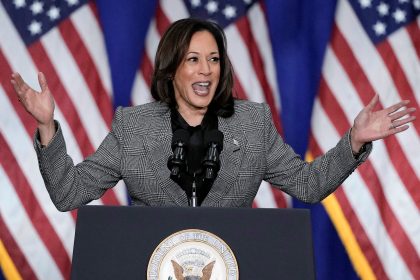FTC Rescinds Recently Issued Merger Guidelines

WASHINGTON — The Federal Trade Commission rescinded its Vertical Merger Guidelines Wednesday signaling the start of what may be a ramping up of antitrust efforts by the agency. The guidelines were issued jointly by the FTC and the Justice Department’s Antitrust Division in 2020. The division also put out a same-day statement that it will be reviewing both its vertical and Horizontal Merger Guidelines.
This follows President Biden’s Executive Order on competition to revise the merger guidelines.
The 3-2 party-line vote this week comes on the heels of the release of a staff study reviewing the last 10 years of unreported acquisitions by the major online platforms – Google’s parent company Alphabet, Amazon, Apple, Facebook and Microsoft – and the streamlining of eight enforcement areas the agency will prioritize in the next decade.
The dissenting commissioners, however, cautioned, “Today’s action, together with other recent attacks on the HartScott-Rodino merger review process,threatens to chill legitimate merger activity and undermine attempts to rebuild our economy in the wake of the pandemic. “
A horizontal merger is when one business acquires a competitor, whereas a vertical merger is when a business acquires another on its supply chain. These guidelines provide the framework by which both agencies review proposed transactions that fall over a certain threshold set by the Hart-Scott-Rodino Act that could cause a significant change to the market concentration.
For both types of transactions, the merging parties have to present the economical sense of the deal and show that the deal won’t be anticompetitive – resulting in higher prices or less choice for consumers and poor product quality.
Since a horizontal merger directly eliminates a competitor, the network effects it has on the market are easier to determine by evidence from past mergers and market dynamics. Assessing the anticompetitive effects of vertical mergers, however, was not so cut-and-dry.
FTC Chair Lina Khan’s joint statement with the Democratic commissioners stated the 2020 guidelines needed to be withdrawn to “prevent further industry or judicial reliance on certain flawed provisions” that have led to less competition with higher prices and smaller wages due to increasing market consolidation across the U.S. economy.
But the Republican commissioners did not agree with the rescission, describing it as “pulling the rug out from under honest businesses and lawyers who advise them” – noting current leadership’s last two months of bipartisan policy withdrawals.
“Vertical integration is a common ‘make or buy’ phenomenon similar to choices that consumers make daily – it’s one way that companies grow,” the dissent explained, and can have procompetitive benefits for the merging company that result in better prices for consumers. The dissenting commissioners agreed that “not all vertical mergers are benign,” but that the 2020 VMGs had established how to address those.
“While the commission’s enforcement actions have already focused on how digital platforms can buy their way out of competing, this study highlights the systemic nature of their acquisition strategies,” said Khan, bringing to light that these strategies “[devote] tremendous resources” to buying up start-ups, patents and technologists from potential competitors in ways that escaped agency scrutiny.
Ninety-four out of the 616 transactions actually should have been reported per the HSR threshold. Thirty-six percent of the 616 also had the buyer assume debt or liability, which meant the selling price of the target would add three more transactions to the 94. Over 75% of the transactions had non-compete clauses, which Khan stated were being scrutinized by the FTC for their “use and misuse…across the economy.”
“While the existing law uses deal size as a rough proxy for the potential competitive significance of an acquisition, digital markets in particular reveal how even smaller transactions invite vigilance,” she said, adding that the report should “plug gaps in our existing work” and be helpful as lawmakers continue to look into reforming antitrust laws.
In efforts to streamline their own enforcement, the FTC also identified the following eight areas this week to prioritize in the next decade: practices affecting U.S. Armed Force service members and veterans; practices affecting children; algorithmic and biometric bias; deceptive, manipulative practices online; restrictions by manufacturers or sellers on the right to repair and build; intellectual property abuses; directors, officers and common ownership in competing companies; and monopolistic practices by tech companies.
























